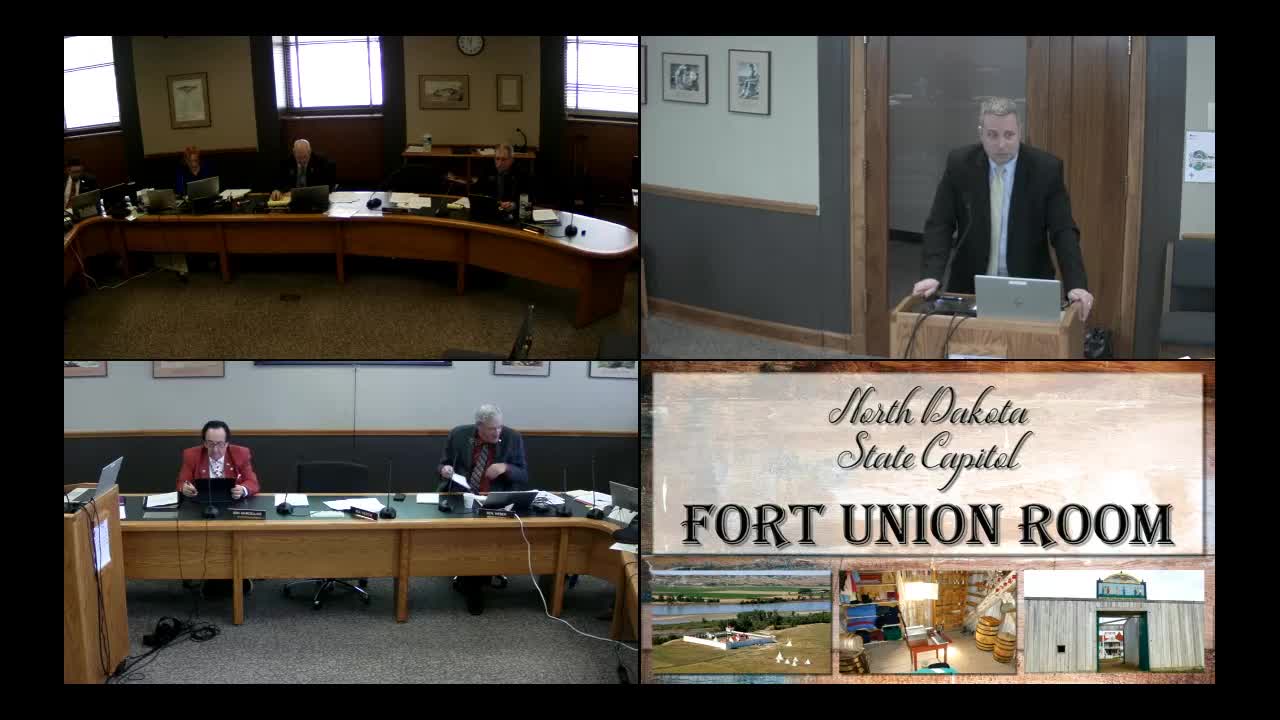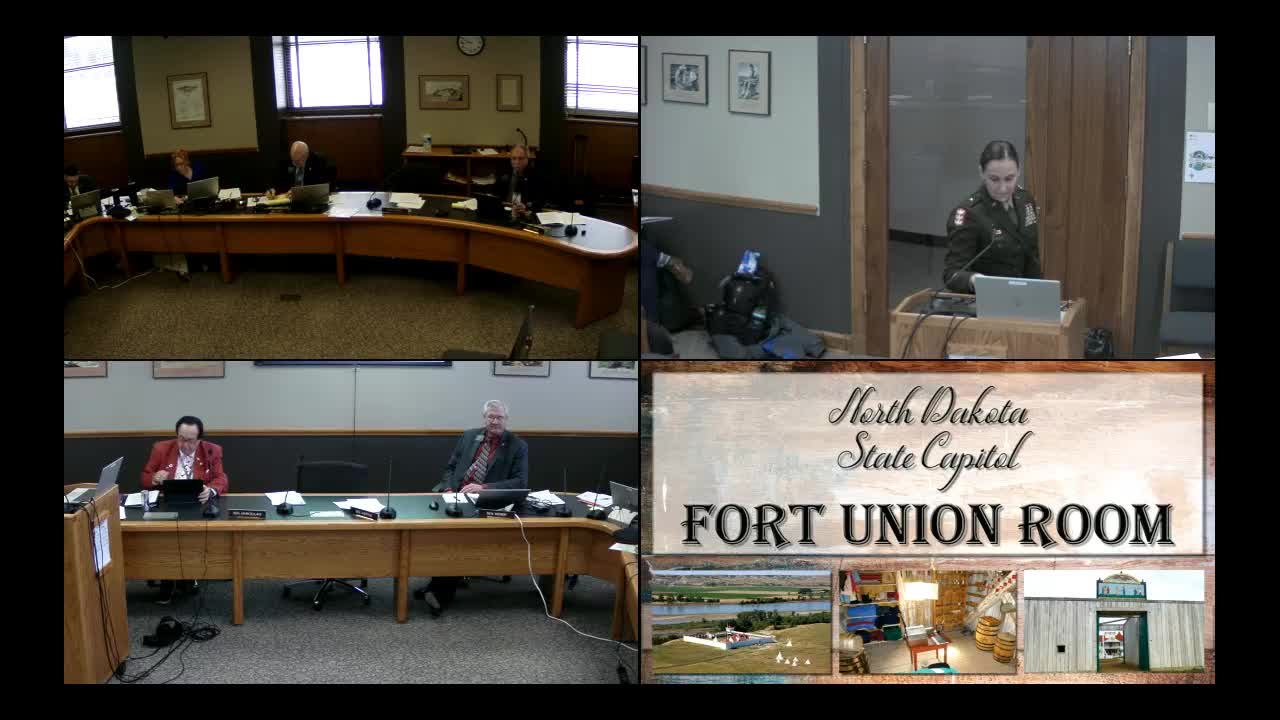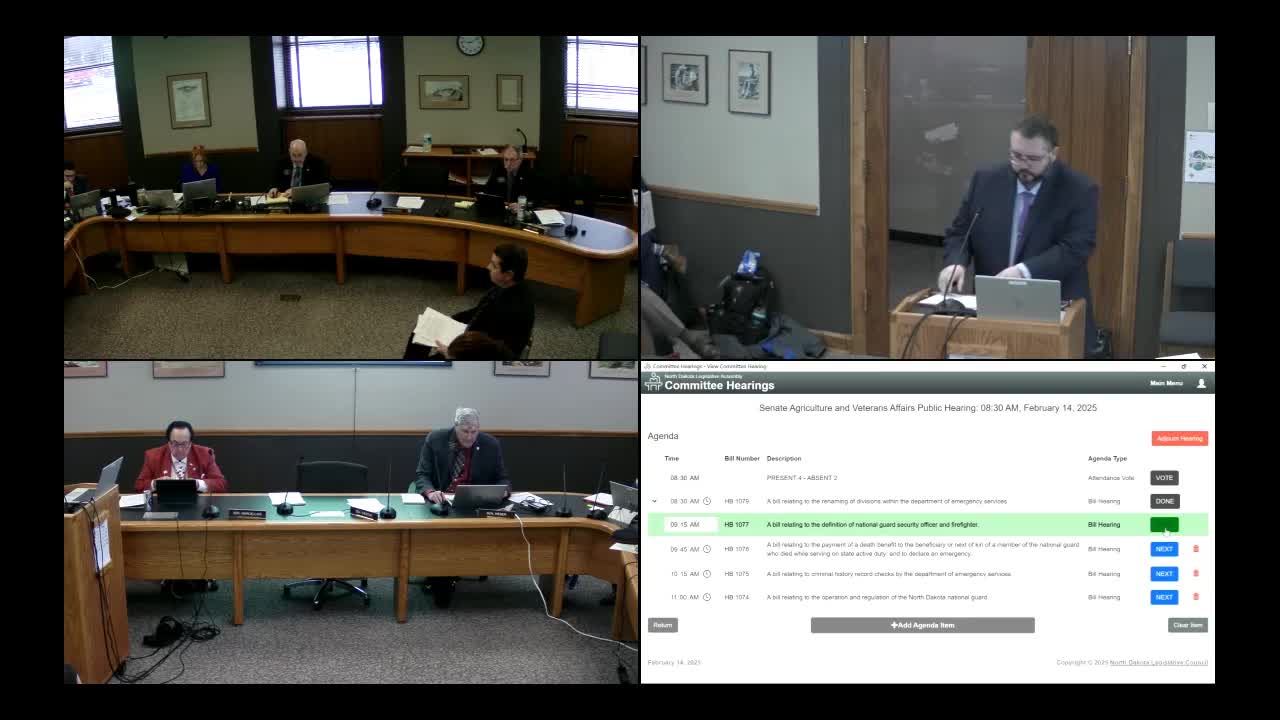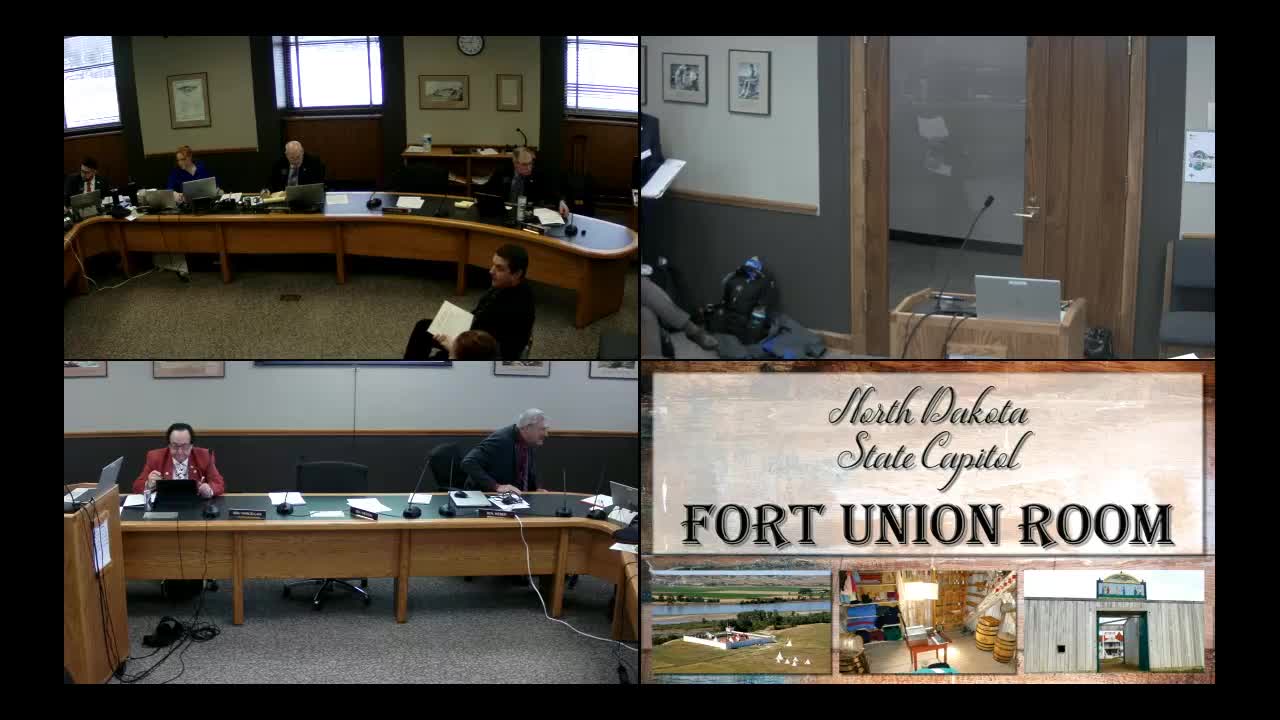Article not found
This article is no longer available. But don't worry—we've gathered other articles that discuss the same topic.

Committee updates state law to match federal military and servicemember provisions

Bill to authorize FBI fingerprint checks at Department of Emergency Services wins committee recommendation

Bill to raise state death gratuity for Guard members to $100,000 recommended by committee

Committee advances cleanup bill clarifying National Guard security‑officer retirement enrollment

